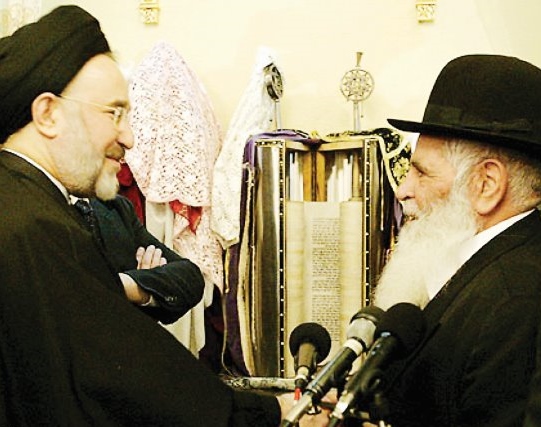News
Iran’s remaining Jews ‘have no plans to leave’
Most of the small Jewish population still left in Iran plans to stay, seeing it as a home in which they have all the resources to practice their religion.

MIRAH LANGER
“These 10 000 Jews who remain in Iran – they want to be there. They have nothing to do with other countries. They can tolerate the conditions in Iran as they have accepted that they are a small community which nevertheless has access to all the things necessary to practice being a Jew,” said Iranian Jewish activist and lecturer Arash Abaie.
Abaie, who is based in Tehran, surprised the audience at the Rabbi Cyril Harris Community Centre in Johannesburg with some unexpected facts about this diminished but highly functioning Jewish community.
“We have a chief rabbi to conduct marriages or even oversee divorces; we have a mohel [person trained to perform circumcisions], we have a shochet (kosher butcher) and kosher slaughterhouse. Everything a Jew wants, they have. We can be independent from other communities, and there’s no worry about the future.”
Abaie, like the majority of Iranian Jews, has a lineage in the country dating back centuries. In fact, it’s estimated that Jews have had an ongoing presence in the region for more than 2 700 years.
Shortly before the Islamic revolution of 1979, the Jewish population of Iran was estimated to be about 100 000. However, after this societal upheaval, the community was hit by waves of immigration – mostly to America and Israel. The result is that the current population is about one tenth of its former size.
It’s a community characterised by high levels of religious practice. In fact, says Abaie somewhat ironically, it was the Islamic revolution that cemented the high level of religious observance in the community.
“After the Islamic revolution, public space became more and more religious. Therefore, other religions also become more religious. For example, before the Islamic revolution there were a few mikvahs, but after the revolution, they built many more. They also built many kosher restaurants which had not been there before.”
He said that while there had once been many Jewish schools in Iran, there were nevertheless still two schools open for boys and two for girls, all in Tehran.
Jewish students are allowed to learn about Judaism during state-allocated religious study periods at school, but the education ministry has to approve the textbooks used.
Regarding anti-Semitism in the country, Abaie suggests a complex reality.
Although Jewish men generally will not wear a kippah (skullcap) on the street, synagogues require no security. Yet, they also don’t have public signage identifying them as such.
On an individual basis, for many, it’s irrelevant that he’s Jewish, but others who are more extreme in their religious or political views might show prejudice.
“There is no real serious problem with the people; there are some problems with the government, and Islamic law.
Based on religious beliefs, the law does openly discriminate against those that are not Muslim in matters such as inheritance.
Meanwhile, while Holocaust denialism erupted after a conference in 2006, in fact, it caused a backlash that had a positive impact on public awareness of the topic, said Abaie.
“After [the Holocaust denialism], many Iranian intellectuals wrote articles or translated books to show the public that the denialism wasn’t correct.”
The greatest source of animosity between the Jewish community and Islamic state remains the issue of Israel.
Iranian Jews are forbidden to travel to the country, and cannot support it publicly.
Abaie said when it came to understanding their connection to the country, the community made a distinction between politics and religion.
“Like other Jews every day we pray three times for the reconstruction of the Beit Hamikdash (Temple) and for Jerusalem. We believe in Israel as a holy land, but we don’t necessarily support Netanyahu or everything that the Israeli government does.”
Yet, he pointed out that this was a choice that they might make, no matter where they were living.